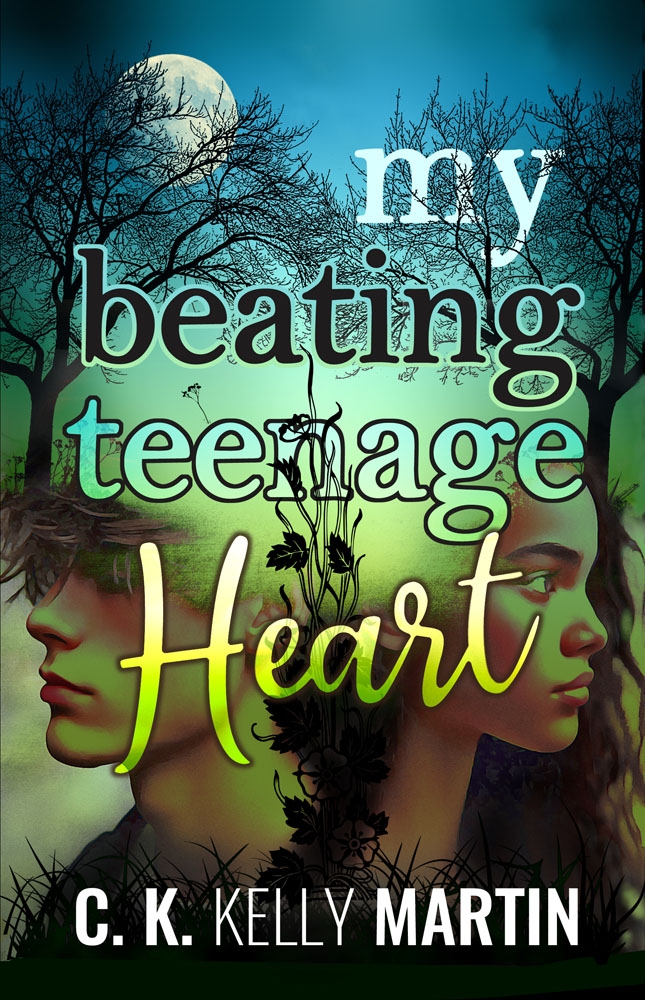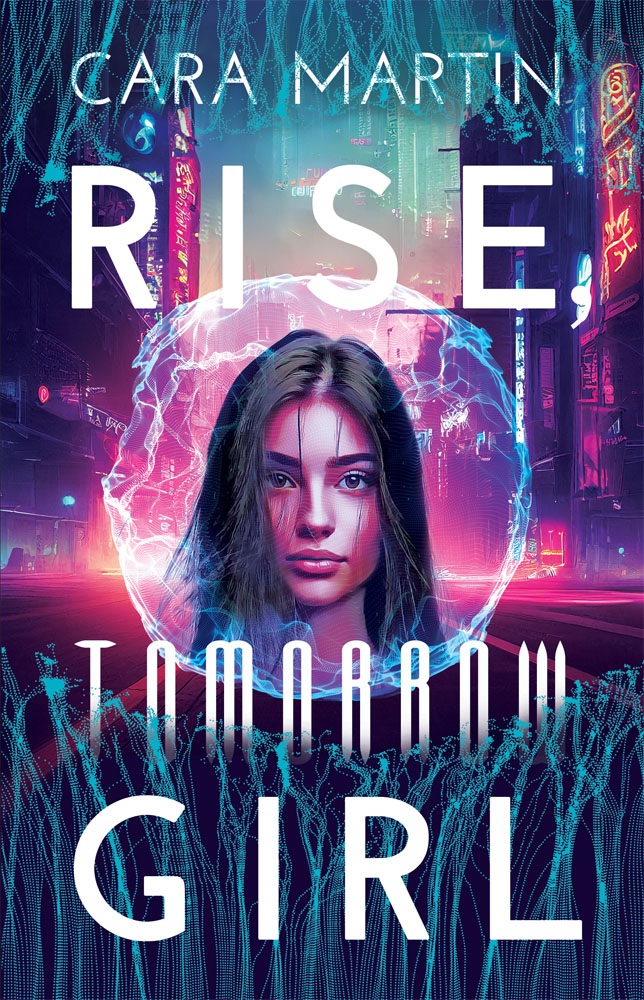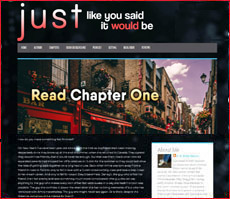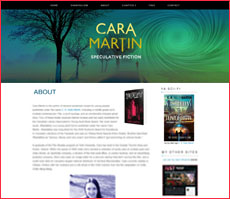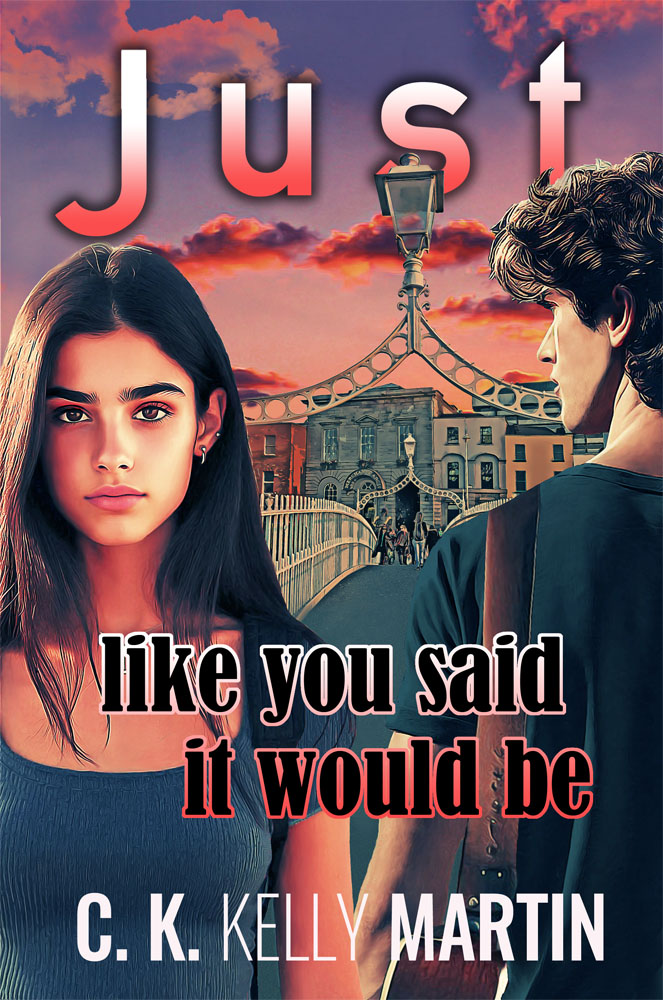My Beating Teenage Heart | Chapter One
The first moment is utter darkness. The absence of thought, the absence of everything. An absence which stretches infinitely backwards and threatens to smother your sanity—if there was a you, that is. But there's not. I am nothing and no one. I never was. I must not have been because otherwise, wouldn't I remember?
Don't look back. Don't let the darkness inside you.
If I'm talking to myself, there must be a me. That in itself is a revelation. I exist. The second before was starkly empty and now I'm swimming with celestial stars. They're as silent as stones but they shimmer, glimmer and shine. I think…I think I can hear them after all but not in a way I've heard anything before.
The sound isn't music and it's not whispers. I don't have words to describe it. If teardrops, blinding sunshine and limitless knowledge combined to make a noise, it would be the one the stars hum while I float amongst them. I don't know much but this is something I'm certain I'm learning for the first time: the stars know things that we don't and they always have.
And then, just as my mind begins to expand with questions
— who am I?
— where is this?
— how am I…
I'm falling, plummeting through the glittering darkness at a speed that would normally make your stomach drop. Instinct kicks in and makes me throw out my hands to break my fall. Only, I don't have any—no hands and no stomach either.
The fear of falling exists in my consciousness and nowhere else. There's nothing I can do to stop my descent. Beneath me continents of light beam their brightness as I speed towards them.
Catch me, stars. Help me.
But they're not stars, as it turns out. They're the lights you see from a jumbo jet when you're coming in for a night landing. They make civilization appear minuscule and for some reason that makes me want to sob but I can't do that either. No hands, no stomach, no tears.
What happens when I hit bottom?
I'm so close now that I can spy individual cars, streetlamps, house lights left on.
Is someone, someplace, waiting for me, leaving the light on?
Where am I supposed to be?
A pointed suburban roof reaches up to meet me, and if I have no body, surely there are no bones to shatter, no damage to fear, but my consciousness flinches anyway. It quakes and tries to yank whoever or whatever I am away from the solid mass shooting up underneath me.
In the split second it takes to realize I've failed, I'm already through the ceiling. Inside, falling still. Falling…and then not.
I don't crash. I don't even touch down. All I can do is stare into the pair of blinking eyes below me. They're not even a foot away. They're the distance you hold yourself from someone when you're on your way to a kiss. I don't remember my own kisses but I remember the concept the same way I remember what a roof or a jumbo jet is. I remember romance, yearning, love and hate in a way that has nothing to do with me. Maybe I've never been in love—or maybe it's happened a hundred times but so very long ago that I've forgotten each of them. I can't decide which idea is sadder.
The eyes open and close as I stare at them. His eyes. The white boy's. They're not staring back at me, but looking clean through. If I had a body I'd estimate it was hovering just above his, toe to toe and head to head with him.
It's night and we're cloaked in darkness, the two of us. But he's the only one who's truly here. Here. Wherever that is.
I'd move if I could, give him the space he doesn't realize he's lacking. I feel awkward, embarrassed about all I can see from here—his pores, his nose hairs, a cracking bottom lip that could use lip balm—even though he doesn't appear to have a clue he's being spied upon. But there's nothing I can do about it. I'm like a camera, picking up images but not in control of angles or focal length.
So I watch the boy's eyelashes flutter and listen to him breathe. What his lungs expel sounds like a steak knife slashing into meat. Not like an asthmatic but like someone so steeped in despair it's a wonder he hasn't drowned in it. How long can someone live like this? It hurts to hear. My nonexistent hands clamp themselves over my nonexistent ears.
Outwardly, my focus barely shifts. I'm still floating over him, listening to breaths of bottomless anguish. Wait…
I must be asleep. My fall from the stars and the hurt I hear in this boy's breathing, they can't be real. This vision I'm watching is nothing but a wildly vivid dream. When I wake up tomorrow, with my stomach, my hands and all my memories intact, I'll shake my head at my panic. Then I'll grab a pen and jot the details down before they fade to nothing. I imagine how crazy every bit of this will seem when I read it back in the morning. Stars that make a noise of wisdom. The power to read emotions through someone's breath.
Insane. Even for a dream. Why not dream of something my eyes would want to linger on—the rapturous merging of two bodies or a purple sky hanging over a majestic blue-green waterfall? Why dream of this sad boy?
I examine him, attempt to cement the details in my mind so I can record them when I wake up, and as I'm watching I realize I can shift the camera here and there after all—not much, but a little. Yes, I can stare at him from the end of the bed if I prefer, or from a blue acoustic guitar leaning against the wall near his window. Maybe I can even…No, I can't escape the room, can't leave him behind. That's beyond my power. He's meant to be the star of this dream for reasons my unconscious isn't ready to share with me. I notice that when I turn away from him to study the room my, gaze jumps inadvertently back to him before long.
And when it does this is what I see: a white boy of about sixteen or seventeen, curly brown hair framing his face. His pupils are light but in the dark I can't determine whether they're green, blue or even hazel. The boy's lying in bed in a gray T-shirt, his bare arms stretched over the covers. He's motionless. Stiller than still except for the blinking. The horrible breathing has stopped, or so it seems. When I listen more intently I realize I can still hear it if I choose. There are some things I can control within this dream, evidently, and this strange audio ability is one of them.
I watch the teenage boy close his eyes. A cell phone rings on the bedside table next to him. My eyes follow his as they dart to the phone and I wonder if the call is important in the scheme of this dream fiction. Perhaps the real action is finally getting started.
Who wants to stand by and be a helpless witness to the grip of misery? I hope, since I'm being forced to take in this vision, that the dream's preparing to morph into something more entertaining—maybe something more closely resembling an action movie or thriller. Do I like chase scenes and gunfire in movies? Shouldn't I be able to remember that, even in my sleep?
Once the phone falls silent, the boy reaches for it, looks to check who called and begins to set it down again. It erupts in his hand and I could swear this time it's louder, almost like a siren. If I have to guess I'd say I'm hearing the phone the same way he is—with added urgency. This time he switches his phone off before returning it to its space on the bedside table.
The boy's gaze flashes away from his cell and towards the alarm clock next to it: 12:23. He lies back in bed, his eyes glued to the ceiling where I both am, and am not. Long moments pass like this. 12:24. 12:25. 12:26. I begin to feel like I'm waiting for a change of scene that will never occur. At last a light tap at the door breaks the spell.
The boy's eyes snap shut as if on cue.
"Breckon?" a middle-aged man with a receding hairline whispers as he pops his head around the now-open door. The man's tie is askew and he smooths it down with one hand and then eases the door open wider, waiting for the boy— Breckon—to stir.
Breckon does no such thing, although I know he's awake. The man pads towards him, sighs silently and sits on the side of his bed. He does this carefully, so as not to awaken the boy I now know to be Breckon. I wonder if the man is his father and if he wishes Breckon would open his eyes and speak to him or whether he prefers this false silence.
The sound of Breckon's breath still hurts if I let it, but I don't. I use the special volume control that allows me to swing down the audio on that alone. His father, or whoever the man is, doesn't seem to hear anything unusual. At first he surveys the moonlit walls—a key-chain collection hanging from four curtain rods mounted one beneath the other on the far wall, a surreal Dali print tacked up close to the door and nearer the bed posters of Pink Floyd's The Wall and a photographic image of a soccer ball sailing through a blue sky.
Dali. I remember Salvador Dali. Jumbo jets, kisses, Salvador Dali and Pink Floyd too. How I wish, how I wish you were here. I hear the lyrics play inside my head and the memory of them makes some currently unknowable part of me ache.
Breckon's father curves his hands around the edge of the bed. He transfers his attention to the boy next to him, peering down at Breckon until his eyes well up with tears.
The movie inside my head isn't an action film but some kind of tragedy, and I've seen enough for one night. I begin to struggle with my brain. Wake. Up. Open your eyes! My subconscious brain is obviously stronger than my conscious one. It's not ready to depart yet. No matter how many mental shakes I give myself, my focus holds on Breckon and his teary-eyed father. Please, please, please let me wake up. I try it like a chant. Please, please, please. With profound longing.
But no matter how much I plead with myself I can't regain consciousness. I'm trapped inside these fours walls.
Slowly, Breckon's father rises and starts back towards the door, closing it gently behind him. That leaves me as Breckon's sole witness and, helpless, I continue to watch him pretend to sleep, his lips parted and his breathing shallow. I suppose at some point the pretense becomes the truth because it lasts until morning light. What should unfold in hours feels more like minutes, and when the sun rises and birds begin chirping outside Breckon's window, I'm no clearer about who I am but at least there's more to see.
Breckon rolls onto his side, curling into the fetal position. He lifts his head and then tugs the rest of his body out of bed with it. In the daylight his eyes are a smoky blue. They match the stripes on his sweatpants. Now that he's standing I can see that he's lean and medium-tall. There's a bump in his nose, which could mean it was broken at some point, but don't ask me how I know that when I couldn't tell you my own name. Breckon's fingers dig into his head and scratch. I circle him, testing out my camera skills now that I have an active subject. I'm able to swirl 360 degrees around his body or sharp-focus on his bare feet or the back of his skull, if I like.
I can cling to the ceiling or dart over to the window at the speed of light, but the real trick—soaring through it and fleeing into the open air—is a magical feat that I can't muster. Meanwhile Breckon himself has opened his bedroom door and is shuffling into the hall. My being follows like we're attached by an electrical current. Staying in his bedroom is suddenly as impossible as leaving it was just moments ago.
In an instant a dog that is little more than tufts of fiery orange and white races towards Breckon with a high-pitched yelp. It launches its front paws up to rest them on Breckon's left leg. The dog stares at him beseechingly.
"Moose," Breckon scolds. It's the first thing I've heard him say and his voice is deeper than I would've guessed. Breckon bends to push the dog roughly away from him. First his father and now the dog. Is there anyone this boy does want to interact with?
I home in on his breathing, only for a moment, but that's long enough for the ache to register. Things aren't any better for him this morning than they were last night.
Moose whimpers as he's shoved aside. He lets Breckon pass, his eyes trailing him, when a forty-something-year-old woman appears in the hallway in pale linen pants and a cardigan. Her long brown hair's back in a ponytail, and her eyes are near enough to the same color as Breckon's. It would be difficult to decide which of them looks more tired.
"Morning," the woman says. She leans in towards Breckon to wrap her arms around him and he lets her.
"Morning," he mutters back.
"I was just about to go down for breakfast," the woman tells him as she straightens and steps back, one of her hands still touching his arm. "Is there anything you'd like?"
Breckon rubs his dry lips wearily together and shrugs.
"How about some eggs?" she suggests.
"Sure." He scratches at his T-shirt. "Thanks."
As they head downstairs together, Moose following, I've begun to doubt my initial assumption that the woman is Breckon's mother, but she's clearly someone he knows well. Someone who wants to make him eggs because at least that means she's doing something for him. Or am I reading too much into their exchange? Perhaps she doesn't have an inkling about the pain he's feeling.
Down in the kitchen, Breckon collapses into a wooden chair and watches the woman pull eggs out of the refrigerator and retrieve a frying pan from the shelf beneath the stove. He clears his throat and sets one of his bare feet on the chair across from him. "So did Sunita get home okay?" he asks. "Did you talk to her?"
"I did." The woman pivots to face Breckon. She smiles for him, but the wrinkles in her forehead proclaim something other than joy. "About an hour ago. She complained that the man in the seat next to her was sneezing nonstop during the flight last night, but other than that she seemed fine."
Breckon nods in response, a yawn creeping into his mouth and making him open his jaws.
"Do you want some toast too?" she ventures. "Juice?"
Breckon shrugs like he doesn't care but the suggestion of juice jolts through me. I remember. And this is different than with jumbo jets or Dali. I remember something specific about me. I like orange juice. Apple too but orange more. I'm not even thirsty, but the mere mention of it sends me into an orange craving that would rival an alcoholic's yearning for vodka or whiskey. Nothing in the world seems more appealing than a tall glass of freshly squeezed orange juice at this exact moment.
Wake up, I urge. Don't you want to get out of bed and pour yourself some real-life orange juice?
While I'm busy having a personal revelation (I love orange juice!), a second woman has entered the kitchen. In many ways she resembles the first. In fact, if the first woman didn't have her hair tied back, I might mistake them for the same person.
"Dawn," the first woman announces, reaching out to stroke the second's arm. "I'm about to fry Breckon up some eggs. Can I put a couple on for you too?"
Dawn cradles her chin like this is a difficult, almost unanswerable question. One of her blouse sleeves is unbuttoned at the wrist but she either hasn't noticed or doesn't care.
"Go on, sit down," the first woman adds, leaping over her original question. "I won't be a second with the eggs."
Dawn bobs her head and trudges towards the table, where she stops and studies the apricot-hued wall behind it. What appears to be a recent school picture of Breckon hangs next to an empty hook and then a family portrait. I study the photos along with her, confirming that Dawn and the man who sat on Breckon's bed last night are his parents. I haven't worked out who the woman making breakfast is yet, and there's a girl in the family portrait—young with white-blond hair cut as short as a boy's—who has yet to make an appearance.
"Oh," the woman at the stove remarks, her mouth drooping around the word as she notices where Dawn's stare has landed. "I have to drop by the funeral home and pick up the photos. I'll do that later today."
Oh. I feel the sting of the implications behind that syllable too and I hope I'm wrong. The girl in the family portrait is much too young to die. In the photo she can't be older than six. But the woman's reference to a funeral home could mean anything—an older relative's passing. It's only a dream anyway, I remind myself. Nobody's died, not really.
Breckon's mother sits across from him at the table. They nod at each other but remain quiet. The sole sounds in the kitchen are of a wall clock the shape of a sunflower ticking and the woman at the stove scraping a spatula against the bottom of the frying pan.
"Lily?" Breckon says, breaking the silence.
The woman with the ponytail turns to look at him. "Hmm?" she says, tilting her head.
"I'm going to hit the shower," he tells her, already on his feet. "I'll have the eggs when I'm finished, okay?"
"Sure, honey." Lily's face is gilded with sympathy. "Whatever you want. I'll keep them warm for you."
Breckon glances down at his mother. Her eyes are blue too, but brighter than his, and she points to her feet, where Moose is sitting on the tile floor, dazedly watching the three of them. Dawn's mouth flaps open as she struggles to formulate her thoughts. "He's been so—"
"I know," Breckon cuts in. He turns abruptly away and makes for the stairs, taking them two at a time like he can't escape the kitchen quickly enough.
"Breckon," his father calls from the top of the stairway. Breckon's shoulders curl towards his chest as he looks up at his father. "I heard your cell ringing in your room just a second ago," his dad continues, hands dipping into the deep pockets of his navy-blue robe. His face radiates the same unhappiness that everyone's inside this house does. And still no sign of the little blond girl, I note. But can't people change their dreams if they want to?
If I concentrate hard enough, imagine the face from the family portrait and wish her into being with all my might, will she materialize in front of us, white-blond hair still mussed from being flattened against her pillow? Can I create a miracle in my sleep?
They call that lucid dreaming, I think, but either I'm doing it wrong or it's a phony concept in the first place, because nothing happens when I envision the little girl in the hallway with us. Absolutely nothing.
"I'll…" Breckon's fingers dive into his curls. "I'll check messages when I get out of the shower." He squints as he continues his climb, maybe remembering the same thing I am—didn't he switch his phone off last night?
Breckon passes his father on the stairs, and lurches through the second-floor hall and into the bathroom where I watch him tear off his T-shirt and sweatpants. He leaves them in a heap on the floor and reaches, naked, for the shower tap. Inside he stands under the stream of water, bowing his head and letting droplets run down his face. He closes his eyes and hooks his fingers into his armpits. His shoulders begin to shake. His face crumples. He cries quietly into his own chest as the tremble takes hold. Breckon's face is red with agony. He quakes and sobs under the sound of running water, and the sound of that undercover weeping is worse than his tormented breathing, though I can still hear that too.
If I've ever seen anyone cry like this, I can't remember it, but I'm certain that even in my waking life, I won't forget, and with the pain of that thought finally, finally my brain changes gears and starts to release its hold on my dream world and let me go. Not through the roof and stars the way I came, but with a simple fade to gray and then black, Breckon dropping away from me as I fall into pure, blessed silence.

